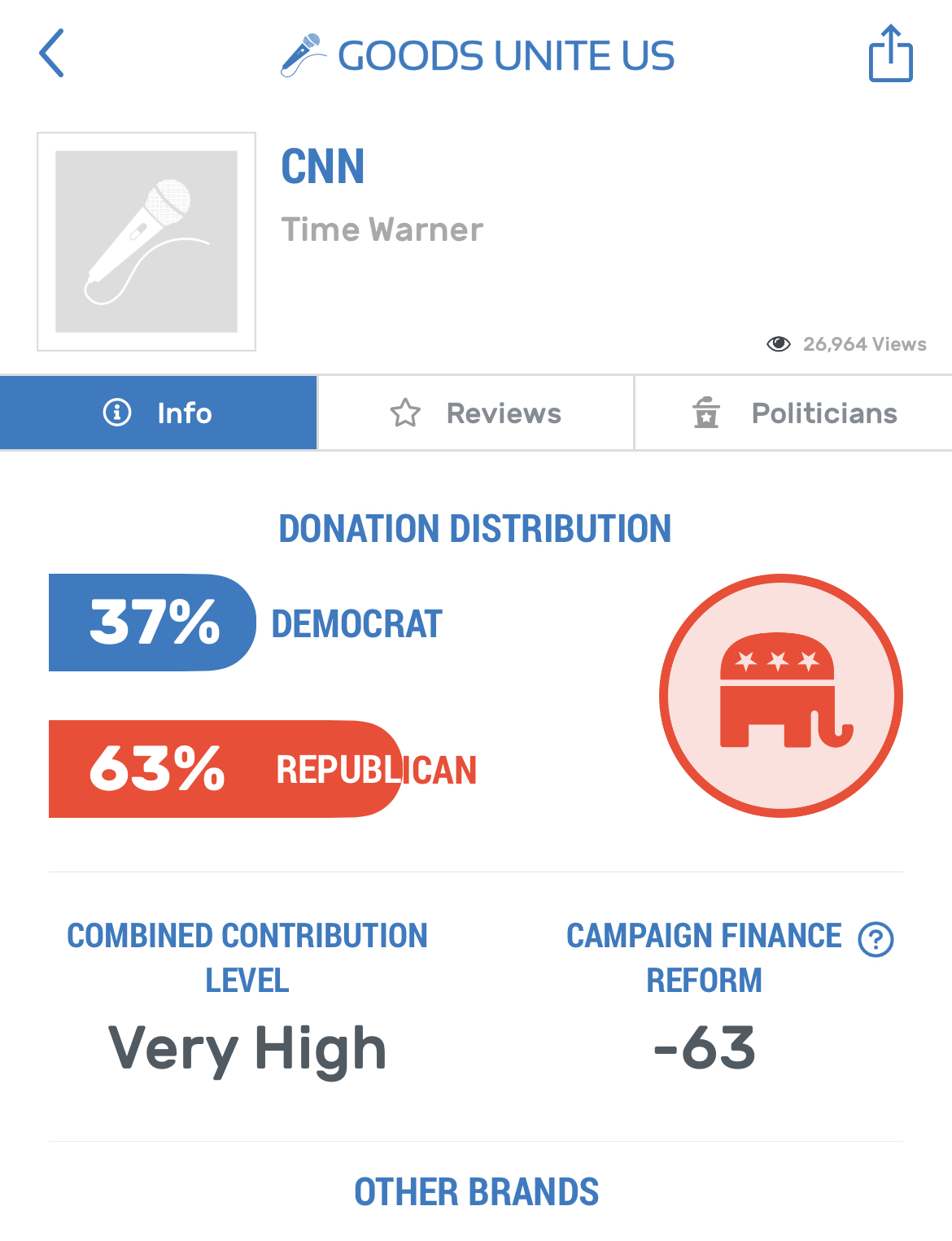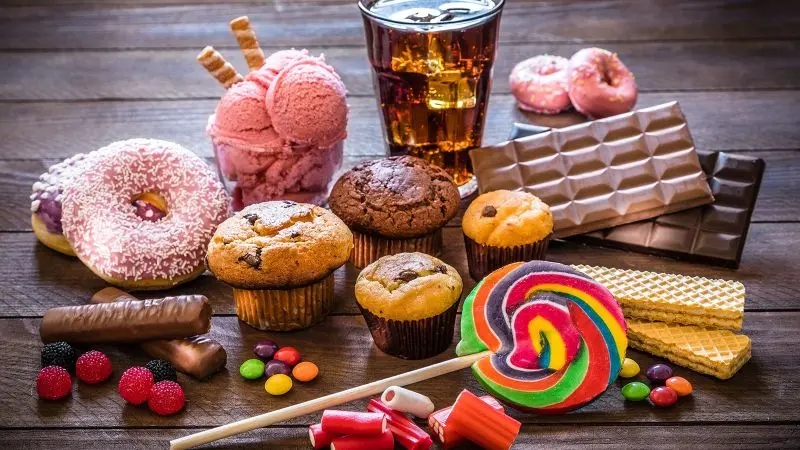plant based alternatives are pretty good for reducing calories or inflammation in my experience.
Ultra processed foods are unsurprisingly (but disappointingly) still bad.
Over half of the plant-based ultraprocessed foods studied in the paper were packaged breads, pastries, buns, cakes and cookies.
“It is therefore very difficult to conclude from this paper that plant-based meat alternatives are bad for your health,” Scarborough added.
Seems kinda misleading imo, how do we know it was the ultraprocessing or just being a factor of high-sugar content?
Is big sugar fucking with shit (again)?
Totally possible
I’ll never get behind that term ultraprocessed. It typically means that a lot of ingredients were combined with specific physical and chemical reactions to create something new.
But think about what happens inside a chicken. You put in corn, soy, insects, water, give it air to breathe. Then it will first use its beak to physically break everything into smaller pieces. Then, it will use highly complex chemistry, enzymes etc. to first digest and then - again using highly complex processing - rearrange all these aminoacids, fat etc. into meat, eggs etc.
And the chicken isn’t even the first step of the chain. The worm, the soy and the corn already did plenty of crazy processing before that.
It’s not processing or chemistry in general that decides about healthy or unhealthy. There’s specific stuff that makes food healthy or unhealthy.
In processed meat you find a lot of added nitrates which can turn into nitrosamines which are known to be cancerous. In vegan substitues it’s as far as I know mostly sugar and fat that make them unhealthy.
Btw. also because because something is ‘natural’ doesn’t mean it’s healthy by default. There are countless poisonous plants and animals that can easily kill you if you eat them just once. And also 100% natural food can be dangerous if consumed in high amounts, e.g. brazil nuts (radio active!), red meat, salt, …
Exactly, they never quite explain what “processing” is, or why it’s bad. Just makes me think of people that say “chemicals” as if they are automatically a bad thing. It’s like, dude… water is a chemical!
Removed by mod
Damn, you went and used the hard “R” and everything… not cool man.
Yeah I fucking hate it. There’s got to be something going on because the results are real but I don’t see why taking say a corn kernel apart and then reconstuting it could transform it into something unhealthy.
It has to be about some sort of chemical change, additive, contaminate, or removal (perhaps structural, fibre structure?) which is inducing these harms. Or at least some cluster of them.
Identifying that is the key, for now weird foods you can’t make in a kitchen should probably be tentatively minimised in your diet but it’s not because of the number of manufacturing steps per se but because something that links oreos, burger rings, and meat pies is waiting to be found.
You’re all overthinking it.
When they say “ultra processed foods” they usually mean that all the healthy (yucky) parts were removed.
White bread is “unhealthy” compared to whole because they’ve taken out the parts that are nutritional and provide fiber. Corn syrup is less healthy than corn because they’ve taken out the fiber and nutrients and boiled it to make a syrup.
You could put kale in a food processor and call it processed, but that isn’t what they mean.
No I’ve actually read the studies of the scientist that started all this. She groups stuff by the number of processing steps and ingredients, making no effort (due to difficulty, I have no reason to believe she’s a hack) to identify the specific reasons.
Her research groups foods which are essentially deconstituted, separated, and reconstituted in the same category as sauces made from 5 base veggies and 40 stabilisers, texture modifiers, flavour additives, and preservatives.
Yea but it is in general a important insight that a vegan patty is usually much better for the environment, but not necessarily for your body. This being said there are different vegan meat replacements, but a lot of the stuff you get in a normal supermarket is not necessarily healthy, since there is a lot of „eatable glue“ in this stuff.
Completely agree. This needs to be better communicated. Vegan junk food is not meant to be healthy, it’s meant to be ethical.
This whole subject is a misunderstanding.
PS: I would go further and suggest that vegans stop insisting that a vegan diet is more healthy in itself. In the absolute, it clearly is not. Perhaps vegans are generally healthier eaters than non-vegans, but that’s because they pay more attention to food in general, not because they are vegan. In other words, the healthiness argument is a conflation of cause and correlation. I don’t think that this disingenuity helps anyone in the end.
A vegan diet is definetely not healthy by definition but for many specific products I would still argue that the vegan version is indeed healthier. And especially for junk food. If you take sausages for example, then both versions - let’s say pork and soy/wheat - contain plenty of fat and salt. But meat products have…
- Worse kinds of fat (meat contains mostly saturated fat while plants often have a better balance of saturated and unsaturated fats)
- The risk to contain nitrosamines which are definitely known to have a negative health impact.
Animal based food on the other hand has better protein quality. E.g. eggs or meat contain a way better composition of amino acids than soy, wheat, peas etc. alone. This negative aspect of a vegan diet can be compensated by combining various different sources of protein (e.g. a mix potatoes, spinach, beans, peas and soy in one meal rather than just soy).
This obviously can be done but it requires some knowledge, practice and more time if you want to prepare everything yourself. Using pre-processed food can make things way easier, more convenient and not necessarily unhealthy. If you can buy a healthy vegan something that tastes good, has similar nutrients like an egg and doesn’t take hours to prepare that’ll make the transition for people a lot easier. If you give them complex recipes and long tables instead of what should be combined with what, it will scare off many folks.
Therefore, if we want more people to go vegan in a we shouldn’t object pre-processed food in general. We should rather praise manufacturers that manage to produce healthy substitutes. Without adding loads of sugar, cheap fats etc. There’s nothing wrong with large-scale food processing in general.
Agreed on all that. Interesting points about sausages. My simplistic assumption has been that animal-based junk food is probably nutritionally superior to plant-based junk food not because of its protein but rather because of the sheer variety of molecules that animals contain by virtue of being higher up the trophic pyramid. I still think that’s generally true but thanks for pointing out those qualifiers.
To be clear, ethically vegan food is superior across the board.
Btw. also because because something is ‘natural’ doesn’t mean it’s healthy by default.
Aw damn, there goes my plant based alternative to vaping.
The point of plant-based foods is less about being healthier (but low-processed plant foods can be), the point is that plant-based foods are less ecologically demanding to produce. A pound of ground beef has a bigger carbon footprint than a pound of plant-based meat substitute.
I disagree, I think the plant alternatives should provide the same nutritional value as conventional items, otherwise people will never make the switch. I don’t think it’s fair to expect plant alternatives to be healthier, but just as healthy is fair
This is not very pragmatic. People who buy processed junk food already do not care about the health factor, what they care about is taste and cost.
As others point out, vegan junk food comes with much less cost to the environment and animal welfare. That is pretty big.
Best should not be the enemy of better.
Ahhh okay, you’re talking about junk food eaters. Totally agree on that point then. I was speaking from the perspective having a non-junk food or less junk food diet.
People shouldn’t be expected to throw away their physical health for the betterment of the environment. The healthiest vegan options are made the same way the healthiest animals products are made, by starting with fresh whole foods not high sodium, fatty, sugar loaded processed foods.
Yeap that’s what I was saying
What exactly does “ultra processed” mean?
Good luck with that definition, lol.
Garbage junk food. Oreos, twinkies, pringles, all of that kind of garbage.
Garbage junk food
is subjective.
Oreos, twinkies, pringles, all of that kind of garbage
are examples.
What is the definition of “ultra processed foods”?
My mistake, I thought you were actually interested
I am. I want to know what it is. How may I determine what is and isn’t ultra processed foods, without asking crispy_kilt every time?
Basically stuff that gets processed beyond adding simple ingredients like sugar, oil and salt.
https://www.heartandstroke.ca/articles/what-is-ultra-processed-food


no shit!
I wouldn’t share cnn articles as they have been heading down hill recently
Fair point, I’ll pick a different source next time
Another reason to avoid cnn

Yes, I try to avoid ultraprocessed food as much as I can.
The UPF fanboys are 0% aware that we’ve had “whole foods” (WFPB) as a diet recommendation for a very long time.
This is why it’s a red flag. The obsession with UPF looks like backdoor-paleo bullshit.
Good to know, but unlikely to change my habits significantly.
You should read about the life expectancy of the city of Loma Linda and about the blue zones and come back here and say the thing.
Tl;Dr?
Loma Linda is likely the most successful blue zone with a life expectancy of around 88 years old.
(What the Adventist Health Study teaches us about longevity
The Loma Linda community was the focus of a study in 1974 that aimed to determine which behaviors corresponded with living a long, healthy life.
The Adventist Health Study concluded that these five practices increased people’s chances of living to 90:
Managing stress levels Getting great sleep Eating healthy Exercising often: Strength training twice a week and aerobic exercise three times a week, even if for just 10 minutes a day. Refraining from smoking Subjects of the study typically stick to a meal plan that’s similar to a Mediterranean diet which prioritizes whole foods, healthy fats, and lots of fruits and vegetables. They also avoid excessive red meat.
Nearly 40% of Adventists in the study were either vegetarian or vegan.
Community seems to lie at the center of all of the blue zones’ core values as well, and Loma Linda is no different.
“When you know that somebody needs you, and wants you to be in their life, that gives you longevity,” Medina said during the docu-series. “Something to live for.”)
Source:










